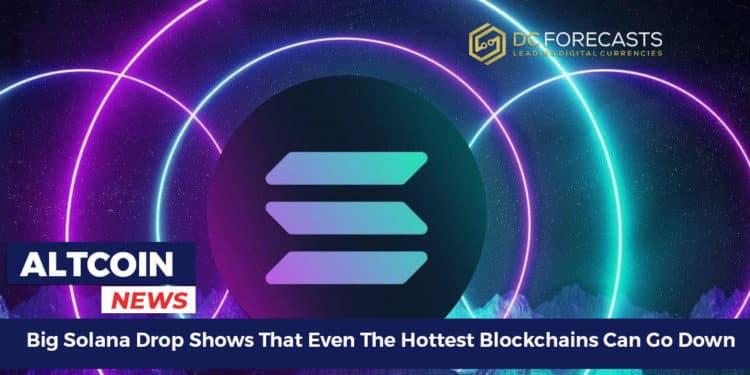The market cap of Solana (SOL) was the centerpiece of many cryptocurrency news websites over the past couple of weeks as it blew past $62 billion this month, while the price of the SOL token surged by 6,000% this year alone. SOL was everywhere in the news and gathered plenty of new investors, some of which claimed that it is a better alternative to Bitcoin and Ethereum. However, the big Solana drop later on changed a lot of minds – now, buying and selling the SOL token is not happening in volumes similar to weeks ago.
Everything happened when the Solana blockchain stalled and could not process any transactions. This was a stark contradiction knowing that the token’s website claimed that on its network, “transactions will never be stopped.” However, transactions did stop that day, and the big Solana drop occurred after that.
Many people afterwards went on to guess what happened, and some even were close saying that SOL was victim of “resource exhaustion.” Many social media users fumed and others even defended the coin. We all saw how one of the worst things happened to a blockchain – and how Solana suffered a drop following a system outage.
Even the president of Bitwise Asset Management, Teddy Fusaro, confirmed this and said:
“This is something we’ve seen over and again in the cryptocurrency markets since they’ve become a phenomenon. And it does reflect how new the industry is, that the industry needs to scale.”
Massively growing technologies are bound to run into bandwidth issues. The big Solana drop occurred because of that, but most of all, because of the lack of preparedness that the early developers had when building this new product.
In many ways, Solana became a victim of its own success – it went from trading for cents until trading above $200 per coin. Proponents said that the speed and lower cost of transactions on the blockchain were the main catalysts behind the price – but the big Solana drop proved many wrong.
buy cialis professional generic buy cialis professional online no prescription
The founder of Solana Labs, Anatoly Yakovenko, commented on the incident with two words” growing pains”. He told Bloomberg that “blockchains are run by basically volunteers, random people with different incentives” and that “it’s impossible to guarantee that these networks are fully bug free.”
DC Forecasts is a leader in many crypto news categories, striving for the highest journalistic standards and abiding by a strict set of editorial policies. If you are interested to offer your expertise or contribute to our news website, feel free to contact us at editor@dcforecasts.com























Discussion about this post